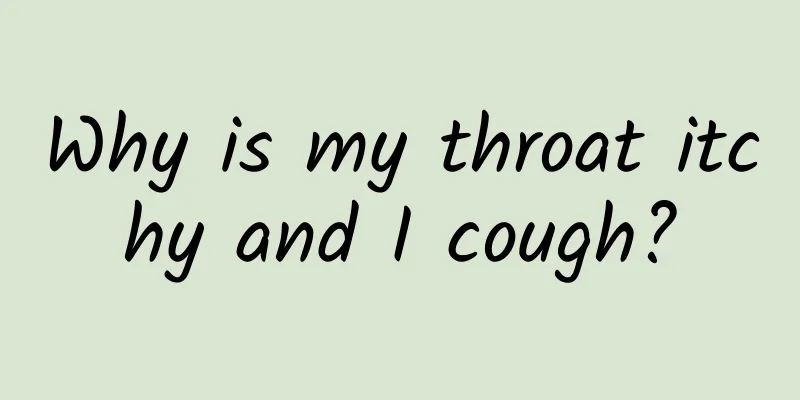TCM treatment of epilepsy

|
Epilepsy is a neurological disease. When the disease occurs, it can cause the patient to have involuntary convulsions and foaming at the mouth, and it can also cause damage to the spleen and stomach function. Therefore, patients with epilepsy should understand the rescue methods. Epilepsy can be treated with traditional Chinese medicine on a daily basis, such as regulating the insufficient Qi of the spleen, lungs and kidneys, and dredging the meridians to replenish vital energy, promote blood circulation, and relieve epileptic attacks. 1. Treatment based on phlegm: The main cause of epilepsy is phlegm, and phlegm runs through the entire process of epilepsy. It is said that epilepsy will not occur whether there is phlegm or not. Children's internal organs are delicate, their body and qi are not full, their lungs, spleen and kidneys are insufficient, the lungs fail to regulate, the spleen fails to transport and transform, the kidneys fail to evaporate, water metabolism is disordered, and it accumulates into phlegm. The phlegm blocks the meridians and goes up against the orifices, causing abnormal qi movement of the internal organs, and the yin and yang are not connected smoothly. The clear yang is obscured and epilepsy occurs. Clinically, epilepsy patients are often treated based on phlegm, with good results achieved by adding or subtracting decoctions according to symptoms. 2 Treatment based on blood stasis: Whether it is caused by falls, bruises, difficult labor or other diseases that lead to damaged blood vessels, or epilepsy itself is difficult to cure and causes long-term illness and blood stasis, blood stasis itself is a common pathological factor of epilepsy. In clinical treatment, many doctors also carry out treatment based on this. Summarizing relevant experience, the damaged internal organs, due to insufficient vital energy, are unable to promote the circulation of blood, resulting in blood stasis. Over time, phlegm and blood stasis form and block the blood vessels, which is the fundamental pathogenesis of epileptic seizures in children. Therefore, Buyang Huanwu Decoction with modifications should be used for treatment, with obvious effect. 3. Treat both phlegm and blood stasis: In the course of epilepsy, phlegm and blood stasis often combine to cause disease. The pathogenesis of post-stroke epilepsy is that phlegm, turbidity and blood stasis block the meridians and orifices, causing the yin and yang, qi and blood to be disconnected, resulting in the loss of nourishment to the primordial spirit and the malfunction of the spirit. Therefore, the Huayu Dingxian prescription was selected to treat epilepsy, and the traditional Chinese medicine preparation Danxing Ningxian Granule, which has the functions of removing phlegm and blood stasis, stopping spasms and calming epilepsy, was compared with phenytoin sodium, and the results were statistically significant. Four diagnostic methods: observation, auscultation, inquiry and palpation 1 Observational diagnosis is a method of diagnosing illness by observing the patient's external appearance, color, shape, posture, and various excretions (such as sputum, feces, pus, blood, urine, menstruation and bloody belts, etc.) with the naked eye. 2 Olfactory diagnosis is to use the doctor's hearing and smell to collect the sound of the patient's speech and the smell of breathing and coughing as a reference for diagnosing the disease. 3 Medical interview is a method of communicating with patients or people who know the situation to understand the patient's subjective symptoms, disease occurrence and evolution, treatment experience, etc., as the basis for diagnosis. 4Pulsion diagnosis mainly involves taking the pulse, but also includes palpation of certain parts of the patient's body surface. In traditional Chinese medicine, pulse diagnosis is mostly done by pressing the patient's radial artery (the Cunkou point on the wrist) with the fingers. The patient's internal changes in the disease are understood based on the comprehensive symptoms composed of factors such as the location, frequency, strength, rhythm and pulse wave morphology of the patient's superficial arterial pulsation. |
>>: Anti-cancer Chinese patent medicine
Recommend
watery discharge during pregnancy
If a woman has watery discharge during pregnancy,...
What foods can clear away heat and cool blood?
Many people do not understand the function of cle...
Feeling of incomplete bowel movements
It is normal to have a bowel movement once a day....
What are the common symptoms of gout in women?
Gout is more common in middle-aged men, while wom...
Early symptoms of lymphoma
Although lymphoma is not common in our lives, we ...
What are the effects of cold vaccination?
Since the body functions of newborn babies are no...
Deciphering what are the pain factors after HIFU surgery for uterine fibroids?
Uterine fibroids xt-indent: 2em;">Many sis...
Baby has diarrhea after vaccination
Babies generally need to be vaccinated after they...
Six rules for health care in autumn
More and more people are paying attention to heal...
The efficacy and function of Zushima injection
Zushima injection is a medicine. Apart from this ...
Can renal tubular acidosis be cured?
Renal tubular acidosis consists of three differen...
Is it okay to extract a tooth without a filling?
Whether to fill a tooth after extraction depends ...
Feeling uncomfortable after porcelain teeth installation
Many people feel a little uncomfortable after hav...
Treatment of Hip Bursitis
Hip bursitis is a very common disease in daily li...
What kind of light food do pregnant women need to eat? Light diet for pregnant women
Many elderly people believe that vegetables and f...









